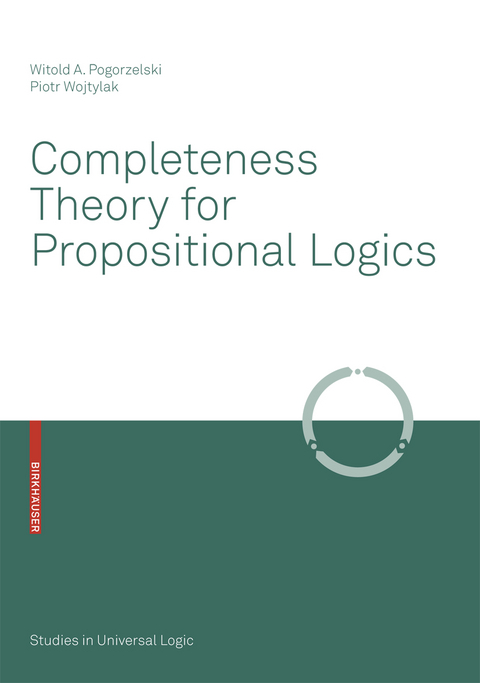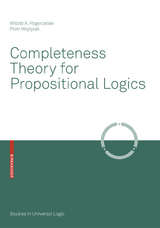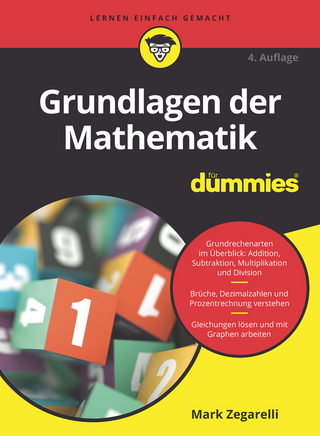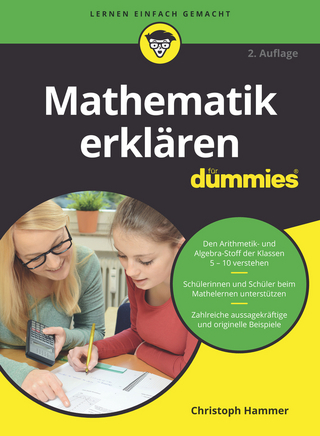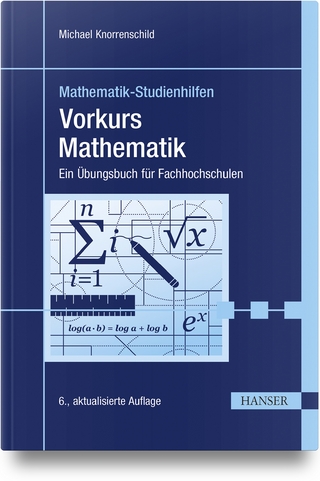Completeness Theory for Propositional Logics
Springer Basel (Verlag)
978-3-7643-8517-0 (ISBN)
The book develops the theory of one of the most important notions in the methodology of formal systems. Particularly, completeness plays an important role in propositional logic where many variants of the notion have been defined. Global variants of the notion mean the possibility of getting all correct and reliable schemata of inference. Its local variants refer to the notion of truth given by some semantics. A uniform theory of completeness in its general and local meaning is carried out and it generalizes and systematizes some variety of the notion of completeness such as Post-completeness, structural completeness and many others. This approach allows also for a more profound view upon some essential properties (e.g. two-valuedness) of propositional systems. For these purposes, the theory of logical matrices, and the theory of consequence operations is exploited.
Introduction.- 1. Basic notions: Propositional languages.- Abstract algebras.- Preliminary lattice-theoretical notions.- Propositional logics.- Brief exposition of the most important propositional logics.- 2. Semantic methods in propositional logic: Preordered sets.- Preordered algebras.- Logical matrices.- Adequacy.- Propositional logic and lattice theory.- 3. Completeness of propositional logic: Generalized completeness.- Post-completeness.- The problem of uniqueness of Lindenbaum extensions.- Some related concepts.- 4. Characterization of propositional connectives: Cn-definitions.- The system (D).- Variants.- The system (I).- Classical logic.- Appendix: The fundamental metatheorem for the classical propositional logic.- A proof system for the classical logic.
From the reviews:
"The book provides a uniform treatment of the variety of results centered around the completeness property. ... book is a good introduction to the problems of completeness. A wealth of examples, comments and theorems well elucidate various difficult aspects of the theory. ... From the methodological viewpoint, the book applies the tools that were elaborated in metalogic ... . AAL also offers subtle tools for tackling some of the problems raised in the book." (Janusz M. Czelakowski, Mathematical Reviews, Issue 2010 c)
"The book is written with exceptional clarity and precision. This combination makes it accessible to a wide spectrum of potential readers, and hence it can be recommended to anyone interested in formal logic. ... the book may stimulate to further research by opening new fields of investigation and introducing new concepts and ideas. Finally, one cannot miss the extensive and up-to-date bibliography which is included in the book. Summing up, the book ... offers a deep and intelligible exposition of completeness theory in propositional logics." (Tomasz Polacik, Studia Logica, Vol. 95, 2010)
| Erscheint lt. Verlag | 17.4.2008 |
|---|---|
| Reihe/Serie | Studies in Universal Logic |
| Zusatzinfo | VIII, 178 p. |
| Verlagsort | Basel |
| Sprache | englisch |
| Maße | 170 x 240 mm |
| Gewicht | 375 g |
| Themenwelt | Mathematik / Informatik ► Mathematik ► Allgemeines / Lexika |
| Mathematik / Informatik ► Mathematik ► Logik / Mengenlehre | |
| Schlagworte | Completeness • Consequence operation • Hardcover, Softcover / Mathematik/Grundlagen • HC/Mathematik/Grundlagen • Logic • Logical matrix • Mathematische Logik • Post-completeness • Proof • Structural completeness • Universal logic |
| ISBN-10 | 3-7643-8517-0 / 3764385170 |
| ISBN-13 | 978-3-7643-8517-0 / 9783764385170 |
| Zustand | Neuware |
| Haben Sie eine Frage zum Produkt? |
aus dem Bereich
